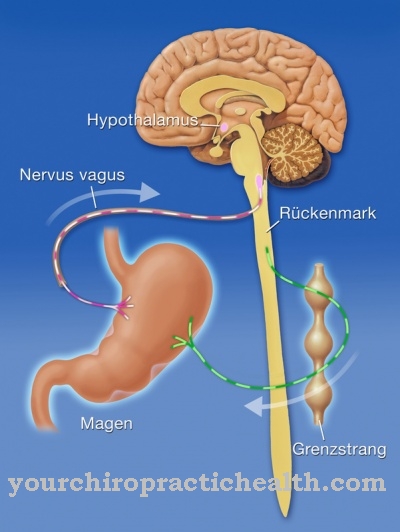Colon cancer is the most common malignant tissue change in Europe. Every year around 66,000 people fall ill in Germany alone. Because the symptoms are often diverse, colon cancer is often diagnosed late. Early detection by means of the Colon cancer screening good chance of recovery.
What is colon cancer screening?

From the age of 50, the statutory health insurance companies offer regular preventive examinations in order to detect colon cancer at the earliest possible stages. The earlier the disease is noticed, the better the chances of recovery. Various measures are used as part of the preventive medical check-up. Not all examinations are repeated at the same interval.
Colonoscopies are usually only performed every ten years if the results are normal.Based on the results, the attending physician determines the individual risk of colon cancer and may initiate further measures. Heredity plays an important role in colon cancer. If there are already cases of illness in the family, these should be mentioned at the first interview. The check-up for the early diagnosis of colon cancer is free for the insured person from the age of 50 with statutory health insurance companies.
Function, effect & goals
The early detection of the first signs of cancer is at the center of colorectal cancer prevention. The doctor uses different methods to assess the condition of the intestine. First there is a detailed discussion between doctor and patient. All complaints should be described here, insofar as they exist. Furthermore, information on diseases in the family provides important information. The examination usually begins with palpation of the rectum.
An occult blood test helps identify blood in stool that cannot be seen at first glance. A positive result may indicate colon cancer. However, because this is not a clear result, further examinations must be carried out to rule out that the red blood cells have found their way into the faeces due to other complaints. The reflection of the rectum is guaranteed by health insurance companies every 3 to 5 years. A perfect reflection at least twice in a lifetime. Despite the risks of a colonoscopy, it should be done at least once.
People who do not belong to the risk group can choose between an occult blood test, which takes place every two years, or a colonoscopy every ten years, as part of the further early detection measures. Such a selection is not required for high-risk patients and is replaced by regular thorough examinations. In general, a colonoscopy is considered to be more reliable. Because polyps do not secrete blood continuously, the occult blood test may be negative despite the presence of cancer. At the same time, a positive test doesn't always mean colon cancer. The test may trigger a false alarm.
Colon cancer develops in most cases from growths of the intestinal lining. Because these grow very slowly, the chances of a cure are high if detected in time. However, early detection and prevention cannot be equated. The various methods of early diagnosis are not part of prevention, they merely improve the prognosis through early treatment. The individual behavior of the patient is part of the precaution itself. Regular exercise and a balanced diet can have a preventive effect. As part of the menu, animal products should be reduced and replaced with a high proportion of plant-based food. Regular consumption of alcohol and tobacco promotes the development of tissue changes.
Instead, aim for a healthy weight and have regular bowel movements. Consuming enough fiber, fruits, and vegetables all contribute to good digestion. Regularly attending doctor's appointments to check the intestines may enable a significant extension of life. Because men are twice as likely to suffer from colon cancer as women, it is worth examining the issue carefully. Colonoscopies are more of a taboo in society. However, because they have a high probability of recognizing polyps, there should be no false shame.
Risks, side effects & dangers
The methods for the early detection of colon cancer are not exclusively beneficial. For example, a colonoscopy can injure the organ in some patients, resulting in bleeding. Bleeding cannot be ruled out, especially if polyps are removed during the examination. However, since mirroring is only necessary every ten years, the risk can be reduced in this way.
If there are no signs of colon cancer during the examination, there is a high probability that it will not develop in the next ten years. However, if polyps are found, it is usually necessary to remove them. Strict action also applies to a positive occult blood test. To make sure that the blood cells did not get into the stool via polyps, a mirroring may be necessary. The individual risk is decisive for further provision. If relatives have had first-degree colon cancer, greater attention is always paid to preventive measures and early detection.
If the doctor determines that the risk is only low, it should be considered whether a colonoscopy should still be used or whether in such a case the possible harm outweighs the benefit. Sensitive people may have allergies to the materials used. In rare cases, pain can be expected during the colonoscopy, although more often it is only perceived as uncomfortable instead of painful. In the event of anxiety, it is possible to put the patient under general anesthesia. During pregnancy or the use of certain medications, it is necessary to clarify whether a colonoscopy can generally be considered.













.jpg)

.jpg)
.jpg)











.jpg)